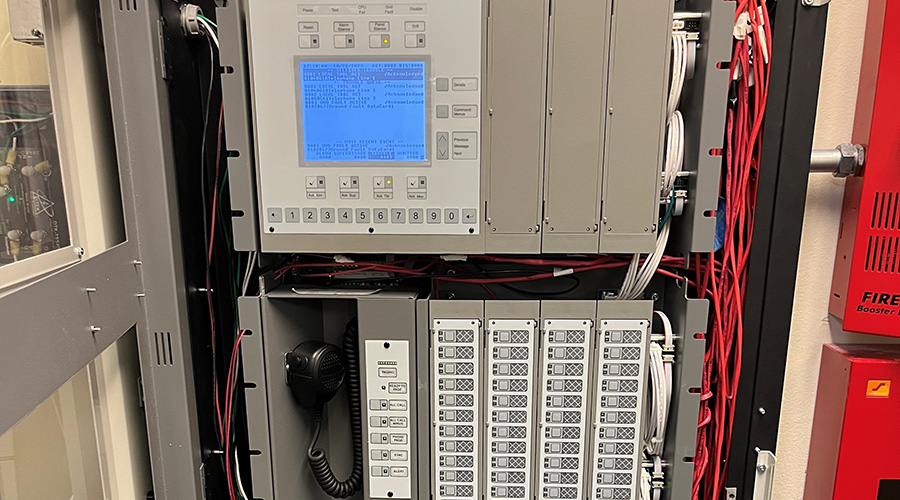Fire Alarms: The Difference Between Addressable and Conventional Systems
Does NFPA 72 allow facility managers to choose between the two options?
By Wayne D. Moore and Larry D. Rietz, Contributing Writers
Fire alarm systems perform a vital role in protecting people and property in all types of commercial and institutional buildings. They are governed by a complex web of requirements determined by codes, insurance carriers, government regulations, corporate goals, building occupancy, and physical elements of the building itself, among others. But even experienced facility managers can find it challenging to navigate the intricate and sometimes confusing details of these requirements.
This Q&A series is designed to help facility managers wade through these details.
What is the difference between addressable and conventional fire alarm systems?
The conventional system will provide zone information (i.e., floor, area, etc.) while the addressable system will provide more detailed information, essentially point identification. Additionally, the addressable system provides a computer-based system and is thus programmable to perform various functions with more ease than the conventional system. Conventional systems are often best used for buildings where there are limited functions necessary for the fire alarm system to perform and where the building layout is easily configured into zones.
Does NFPA 72 permit me to choose between an addressable and a conventional fire alarm system?
Yes. NFPA 72 does not dictate whether an addressable or a conventional system must be used to meet the fire alarm system requirements of the building codes. Both types of systems are code compliant. Therefore, the choice of the type of system is left up to the facility manager and the designer. The decision as to the type of system should be based on an analysis of the needs for information and operational reliability desired for the facility.
Does NFPA 72 allow the use of emerging technology for fire alarm system installations?
Yes. NFPA 72 explicitly permits the use of systems, methods, devices, or appliances if they are equivalent or superior to those listed in the code. (See NFPA 72 section 1.5.1.)
However, if any non-code conforming or emerging technology equipment is proposed for use, there are requirements for technical documentation that must be submitted to the AHJ, who must ultimately approve the proposed use. So, while emerging technology may be used, the approval process may be lengthy, and facility managers should plan accordingly.
Wayne D. Moore is a licensed professional fire protection engineer with over 45 years of engineering experience. Moore currently serves on the NFPA 72 Correlating Committee and Chapter 24 Technical Committee (past Chair), as well as being an editor of five editions of the “National Fire Alarm Code Handbook.”
Larry D. Rietz, is a NICET Level IV Certified fire alarm designer with more than 29 years of life safety industry experience. Rietz is Vice President and Global Service Line Leader for Fire Detection and Alarm for Jensen Hughes and serves on the NFPA 72 Chapter 24 and 12, 21, & 23 Technical Committees.
Related Topics:












